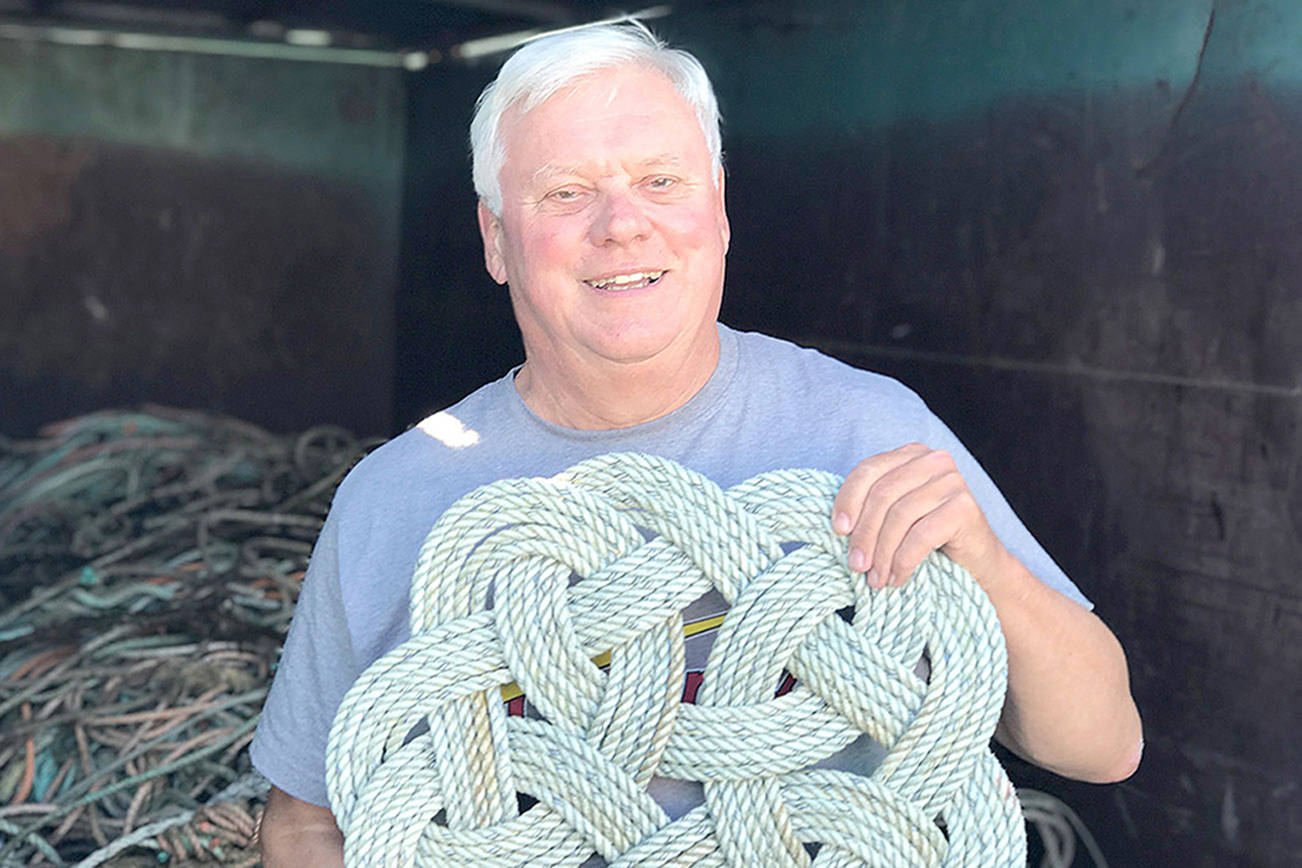By Thorin Sprandel
Grays Harbor News Group
Like so many servicemen before and after him, the first place Greg Neitzel went when he was discharged was his home where he grew up. In Neitzel’s case, this meant returning to Astoria, Oregon, in 1972, where he resumed work as a commercial fisherman after serving in the Marine Corps.
In the early 1970s, fishing out of Astoria usually meant going to sea in a wooden boat, and it was aboard a wooden boat named Barracuda that Neitzel first began to weave. He started reading knot books and learned to make chafing mats by hand out of old line. These mats were a common accessory on old wooden boats that you don’t find on newer fiberglass or steel boats, Neitzel explained.
“I don’t create anything new. I just perpetuate the ancient maritime craft,” he said. He also doesn’t use anything new to make his mats, instead he sources recycled fishing line — heavy ropes used to pull up fishing nets or pots.
When Neitzel needs line to make more mats, he makes the drive from Astoria to Westport and gets it from the Fishing for Energy partnership fishing gear recycling bin. The bin, which is really more of a large Dumpster, was created for the Westport fleet to recycle derelict gear. They recycle a lot of fishing line but also nets and pots, said Molly Bold, Westport Marina business manager.
Besides the eager participation of the Westport fleet, the recycling project has seen interest from the local art community including Emily Miller and Maggie Machado http://www.ghostnetart.com and Shelby Silver http://shelbysilver.com, said Bold.
According to a National Fish and Wildlife Foundation (NFWF) release about Fishing for Energy, the removal of old gear helps restore the quality of marine and coastal habitats, and “supports the communities and industries that rely on those resources.”
Neitzel first got the idea that he could proft from his weaving after he traded some mats to other Astoria fishermen in exchange for beer. Neitzel now sells his mats at the Astoria Sunday Market every Sunday from Mother’s Day until the second Sunday in October. He said he rings a ship’s bell and says “More goodwill for the commercial fishing industry” every time he sells a mat.
In recognition of the need to pass on his craft, Neitzel teaches workshops that are equal parts weaving instruction and talks about maritime history, sustainable fishing practices, ocean-conscious fleets and the role of fishermen as providers of food to the world.
Neitzel will be in Westport on Dec. 14 and 15 to teach workshops at the Maritime Museum. He also teaches weaving at Clatsop Community College, the Cannon Beach Arts Association and the Barbey Maritime Center.
“I’m 100% pro-commercial fishing,” said Neitzel.
“Maritime skills, sustainable fishing, ocean stewardship from a fisherman’s perpective — they all tie together,” he said.
Fishing for Energy is a partnership between NFWF, the National Oceanic and Atmospheric Administration’s Marine Debris Program, Covanta and Schnitzer Steel Industries.



